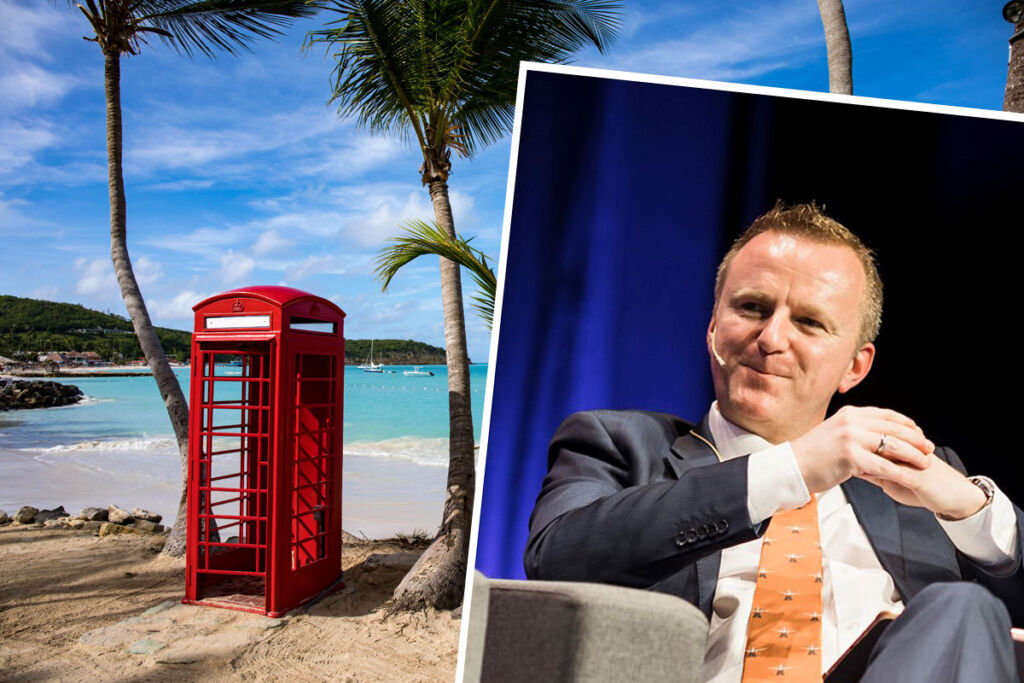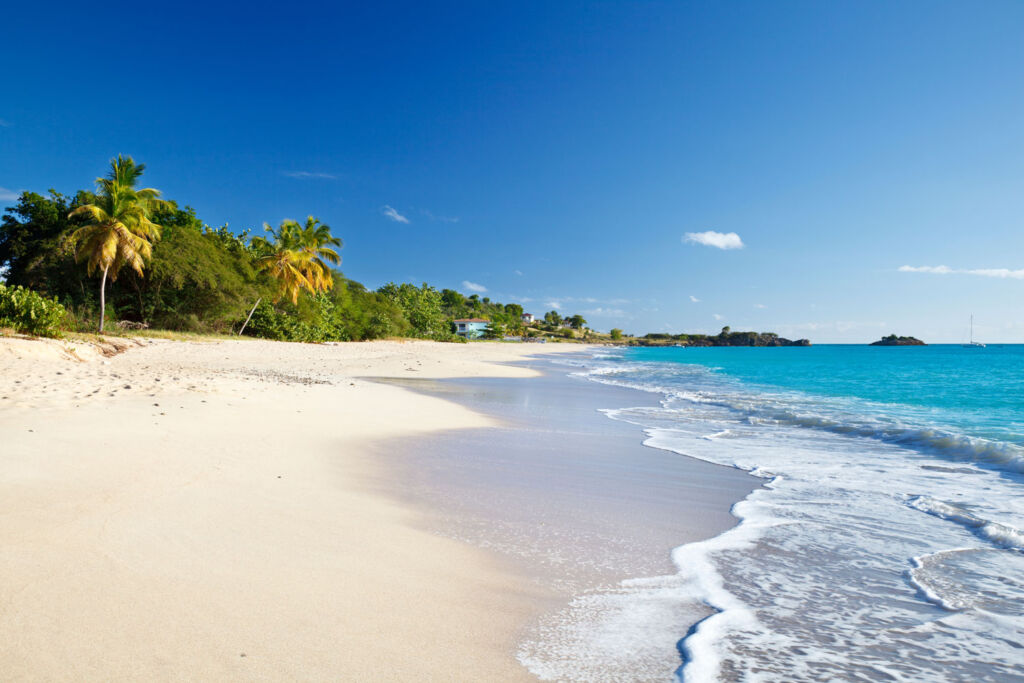

Ged Brown is not out to change the world single-handedly, but he is devoted to inspiring others to join the Low Season Traveller movement.
Never has low season travel been more crucial than now. With the global travel and tourism industry on the brink of collapse, Low Season Traveller aims to support the recovery by encouraging holiday-makers to think carefully about not just where they travel to, but when they travel.
Founded in 2018 by a collection of travel industry aficionado’s, Low Season Traveller aims to inform and educate why travelling out of the traditional ‘peak periods’ can be more enjoyable, supports sustainable travel and helps destinations and tourism operations manage visitor numbers.
Originally developed to combat over-tourism, Low Season Traveller’s purpose was simply to inspire travellers to explore to consider the many benefits to their own travel experience, the environment and local economies by exploring away from the crowds or at a time the ‘glossy’ travel companies are promoting. Today, however, Low Season Traveller is focused on how it can support the industry on recovering from the pandemic and inspire people to explore the world again.
Luxurious Magazine: Are you a man on a mission?
Ged Brown: LOL! Yes, I suppose I am in a way! I really do believe that the present situation facing the world is providing us with a unique opportunity to re-evaluate how we do things and to decide in which direction we should be going.
In essence, Covid19 has brought us to a junction where we can decide whether we should go down the path we were travelling on or take a different path. I’m advocating a different path which will share the prosperity of travel wider both in resort and at home whilst also helping to protect our ability to travel in the future for the next generations.


LM: You are the brainchild behind Low Season Traveller, what is it all about?
GB: The idea came to me in 2018. I have been following global travel trends closely for the past 15 or so years, and I could see that whilst tourism was continually increasing every year globally, so too were the occurrences of “over-tourism” which is in effect, tourism mismanagement. As the occurrences and impacts of over-tourism were spreading, I saw that every single prediction had tourism growth accelerating further, and this concerns me.
My fear was that to curb tourism growth, we could conceivably have to increase prices which would return travel to the exclusive preserve of the relatively privileged. Travel and the education which global travel brings should be available to everyone, and if it is, there is a greater chance of cross-cultural understanding and therefore global harmony.
Our solution is to inspire people to consider travelling solely during the low season months when there are fewer crowds, fewer queues, more local interaction, lower prices and more authentic and unique experiences to be enjoyed.
It’s about opening people’s eyes to the wonderful possibilities during the low season months whether on Safari in Zambia or on the beaches of Vietnam or in the cities of Europe. We do this via our Insider Guides podcasts, Low Season Live Talk Facebook live series, articles and other media. Our aim is to inform and inspire.
LM: Is it possible to book holidays on the site too?
GB: Absolutely. We have an excellent arrangement with the award-winning Designer Travel, which is part of Hays Travel Group. Bookings can be made via one of their 85 specialist homeworking agents, and we donate the commissions to local community-led projects in each destination.
It’s our way of helping clients to know that not only are they travelling at a more responsible time of the year but also that their travel will leave behind a positive legacy within the community in resort too. And it’s something we can all feel good about as we help to make travel truly sustainable and fair for all parties.
LM: ‘Flattening the curve’ is something we are accustomed to hearing these days, solutions for over-tourism adopting a similar principle; controlling the influx of holidays-makers to a destination will reduce the negative impact of too many visitors at particular times?
GB: Exactly. Overtourism is really created by specific pressure points throughout the year. Research shows that most destinations welcome 70% of their tourists during six critical months of the year, which means that for the remaining six months, tourism and the economic benefits to the community are spread very thinly.
Many hotels are less than 30% occupied during the low season months, and this can have a dramatic effect on the local economy and community. With the onset of Covid19, travellers are actively seeking to avoid the crowds like never before, and this provides us with a real opportunity to promote and highlight our low seasons like never before.
LM: 10 years from now, what difference will it make to the planet and our lives, if the flow of visitors to destinations was more evenly distributed over the (high and low) seasons?
GB: Well, in 10 years time, the world will have welcomed our 2 billionths, international tourist. There will be over 250 million international trips made by the Chinese alone (currently 145m and up from 10m at the turn of the century). If we can do this, we will see a more even distribution of economic activity worldwide in tourism destinations, and we will be able to welcome more international tourists to our destinations.
Even the most well known of over touristed destinations like Iceland, Barcelona, Dubrovnik and parts of Thailand have the ability to accommodate significantly more tourism if the curve of seasonality is flattened out.
If we don’t flatten the curve, we will have to build more hotels (which will have occupancy levels of 30% or less for six months of the year), and we will see more local displacement, more erosion of cultural heritage and more damage done to destinations which ironically, will destroy the very reasons why we all wish to travel and experience them.
LM: Helping people to understand the need for a shift in mindset toward why to travel off-peak must have some challenges, are the travel industry or the travelling public more on board with the concept?
GB: The consumers are moving towards this mindset much quicker than the travel industry generally speaking. Consumers are looking for ways to do everything responsibly as we become more aware of the impact of our actions regarding the environment and the people it affects. We know that everything we do, buy and consume has an impact on people and the planet.
Responsible travellers tend towards low seasons anyway for all of the reasons identified. Here at Low Season Traveller, we are just providing them with a home base for low season travel which no one has ever done before.
As an industry, over 30 years of pretty much guaranteed annual growth has left the industry fat and lazy. We didn’t need to be incredibly creative or innovative. We just needed to open our hotels, and for the most part, we would see increases every year if we did the right marketing. No one, ever, in the history of the global travel industry, thought to promote the low seasons in a positive, responsible and proactive way. That fact alone demonstrates how complacent we became.
Covid19 has brought the area very much to the forefront now, as many destinations around the world, particularly in southern Europe, have just had their key, peak months decimated by the effects of Covid19. Quite simply, we have to promote our low seasons now in order to save the travel industry from a potentially disastrous future.
On a positive note, the conditions for this change are perfect. We are living in times where more people than ever before want to have authentic and real experiences as well as seeking to “avoid the crowds” which is exactly what low season travel is all about.
LM: How will these unprecedented times we are now living in, impact or detract from the mission/messaging?
See above.
Is it likely we’ll see an automatic ‘shift’ in seasons because of COVID-19?
GB: Well, the whole world is in low season just now. There are fewer tourists today than ever before, but yes, se4asons will shift and change according to demand. Our focus has to be on the quietest times of the year in order to spread tourism out more and even the balance.
Many destinations are already working on this as they create festivals during the lower seasons in order to attract more visitors. Las Fallas in Valencia, for example, is held each March during the low season and it is practically impossible to book a room in Valencia unless you do so well in advance. It’s similar to St Patricks Day in Ireland I guess.
We will see more pockets of “high season” periods within the low season months but by and large, low season travel, for now, is very much under the radar – which is excellent news for all of us low season travellers.
LM: Your podcast has been growing in popularity over the years, what type of guests do you have on for a chat?
GB: Yes, just under two years now. We’ve had over 80 guests from 80 different destinations around the world which has been absolutely incredible. We speak to tourism workers, hoteliers, guides and passionate locals every week in order to learn more about the low season experience in their part of the world.
It’s really just an informal chat between myself and the guests to help inspire people to consider a trip during the low season and to reassure them that it is a wonderful time to visit.
I love recording them as I learn so much every week. Last week we did a talk with a game ranger from Southern Africa who told us about the world’s largest migration of mammals every year in Zambia. It only happens during the low season, and hardly anyone is there to experience it! In the next few weeks, we’ll speak with Nick Middleton who’s a geographer and fellow of St Annes College Oxford.
He has written books and recorded tv shows for National Geographic and The Discovery Channel on the subject of “going to extremes” where he travelled to see what life is like in the world’s hottest, coldest, driest and wettest locations. He’s the ultimate low season traveller, to be honest, and I can’t wait to interview him!
LM: Where are you planning to travel to next?
GB: This is officially the longest period of time in my life without travelling overseas – 7 months and counting, so I’m super excited to be heading over to Sri Lanka in the coming months to record a Low Season Traveller TV series with the support of Sri Lankan Tourism.
I got married in Sri Lanka in 2004 and chartered an A330 to help with the relief effort after the Tsunami, so it’s a destination I know well and one which has an outstanding offering during the low season months too.
I can’t wait to get out there!
Read more exclusive interviews in our dedicated section here.
